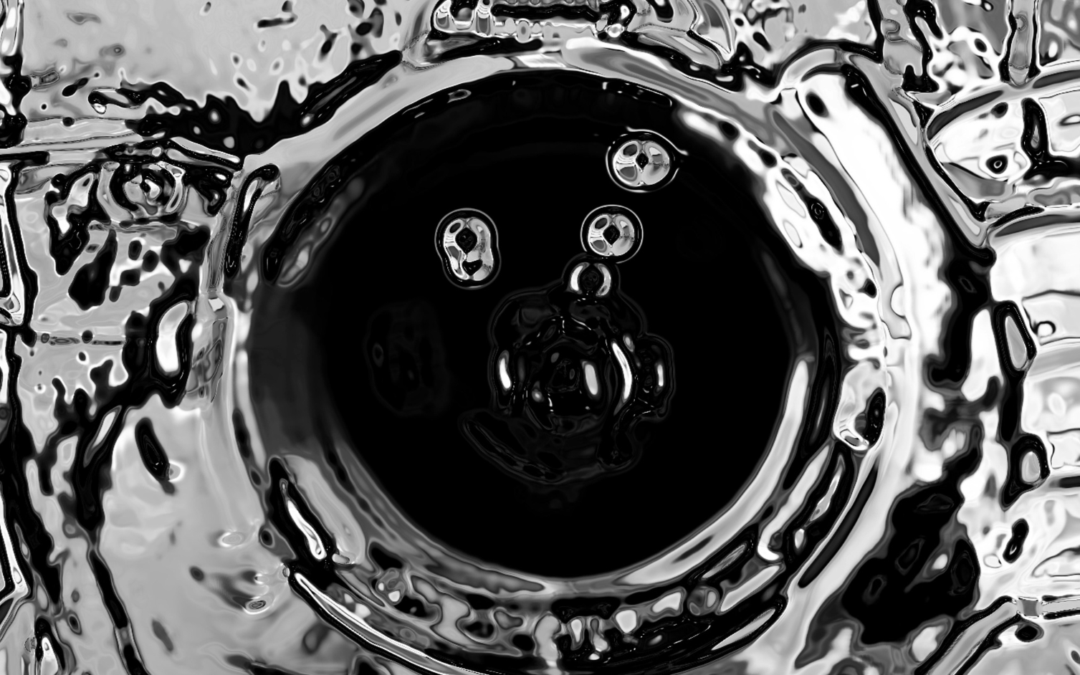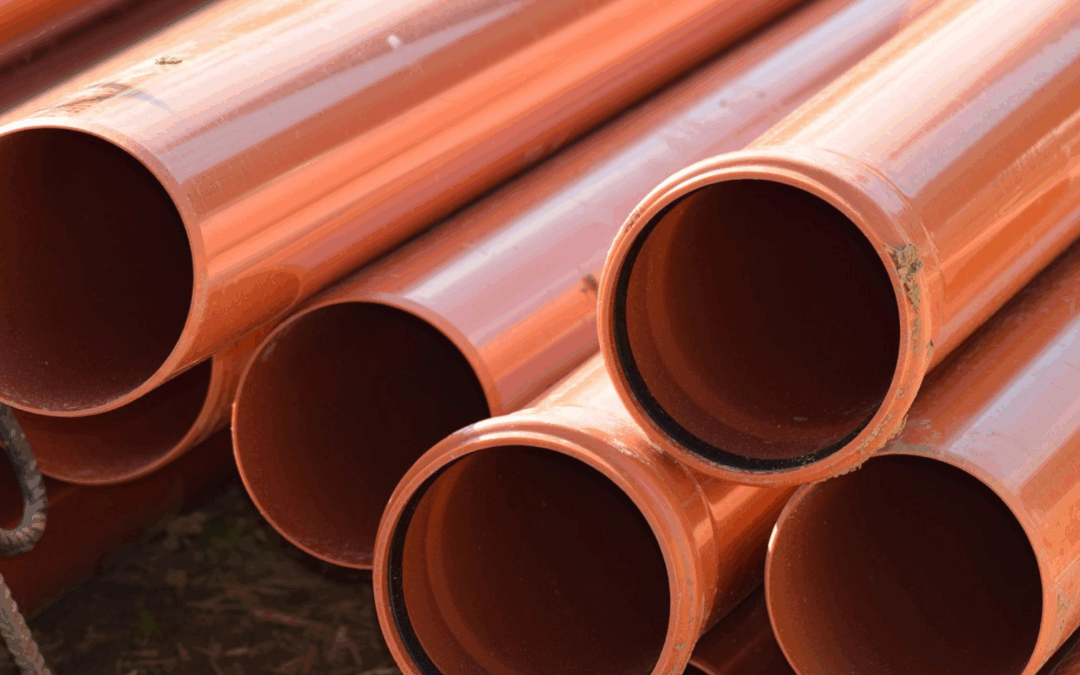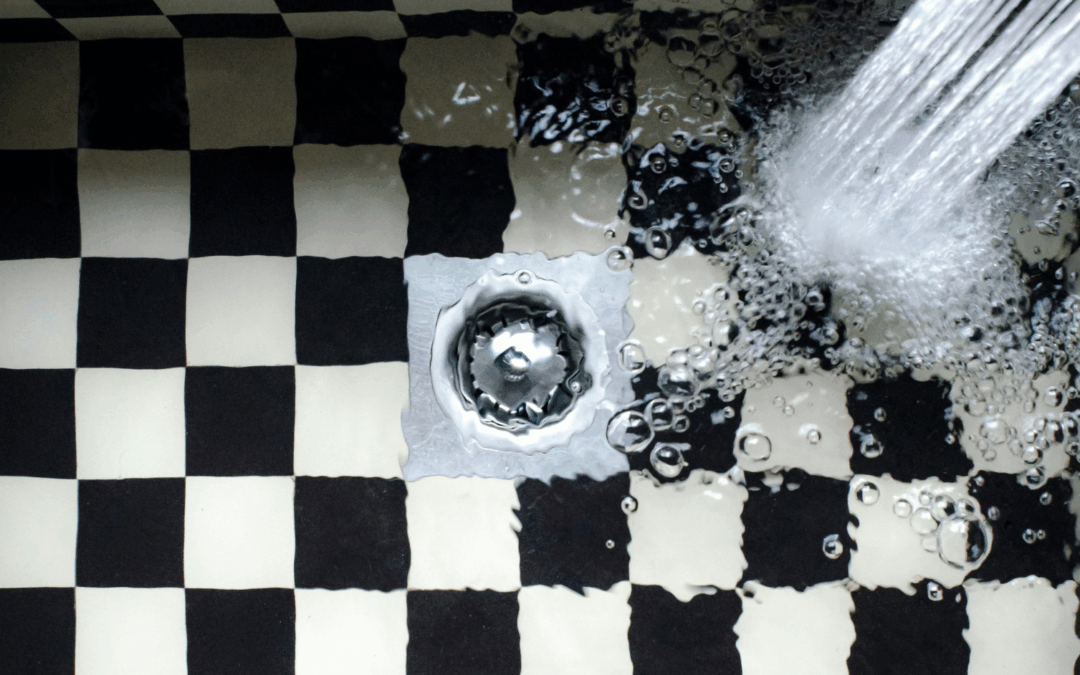Are you worried about the water crisis in your area? It’s a fact: our world is struggling with water scarcity, and as responsible citizens, we need to do our share in conserving water. Now you’re probably wondering how to conserve water.. You don’t have to go out of your way to save water, you can do simple things in your home and daily life to help our planet. Continue reading this blog to learn about some easy and effective ways to conserve water.
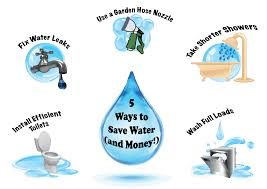
Fix Leaks and Drips
It may be easy to ignore those little drips and leaks, but they add up to a lot of wasted water over time. Even small leaky faucets can waste as much as 150 gallons of water in a week. To conserve water, fix any leaks you may have in your faucets, toilets, and showerheads. This simple act can save you money on your water bill, too.
Schedule Service Online
Get a free estimate so you know what you're signing up for
"*" indicates required fields
For Emergency Services Call: 410-255-9300
Use a Bucket While Washing Your Car
Do you love washing your car on a sunny day? Many people do, but few realize how much water they’re wasting in the process. To conserve water, place a bucket of soapy water next to you while you wash your car, and use the garden hose only to rinse it off. This small change can save about 150 gallons of water each time you wash your car! Avoid a commercial car wash if you can!
Plant Drought-Tolerant Vegetation
Do you love landscaping your home with beautiful flowers and lush grass? You can still create a picturesque garden without wasting water. Plant drought-tolerant plants, shrubs, and trees that can survive with less water. This will reduce your water usage significantly and save you money on your water bill. Plant drought resistant lawns and a good irrigation systems are a great way to lower your water footprint. Plus you can also collect rainwater to water plants with a light sprinkling. Plant only native plants, prevent weed growth, and use efficient watering systems for soil moisture and watch your plants thrive!
Use a Broom Instead of a Hose While Cleaning
Do you use a garden hose to clean the dust and debris from your walkway or driveway? That’s another way you’re wasting water! Instead of using a hose, use a broom or a blower to clean these areas. This simple change can save up to 150 gallons of water in one go and clean driveways are still happening!
Take Shorter Showers
We all love a long, relaxing shower, but it’s one of the biggest culprits in water wastage. To conserve water, take a shorter shower, or consider using a water saving shower heads. You’ll not only be saving gallons of water, but you’ll also reduce your energy usage, thereby saving money on your electricity bill.
Use A High Efficiency Washing Machine
In today’s world, saving water has become more important than ever. And a high-efficiency washing machine can go a long way in reducing water usage. While traditional washing machines use copious amounts of tap water, high efficiency washers utilize less water, particularly with warm water settings.
Additionally, by running only full loads of laundry, homeowners can further reduce their water usage. With features such as deep soak and water efficiency, these washers ensure that clothes are still being cleaned thoroughly, without wasting precious resources. Keep an eye out for the energy-star label when shopping for a new clothes washer, as it means the appliance has been certified for its use of water efficiently and energy-saving characteristics. Switching to a high efficiency washing machine is a simple yet impactful step towards conservation and a more sustainable future. You’ll save five to ten gallons of water per load.
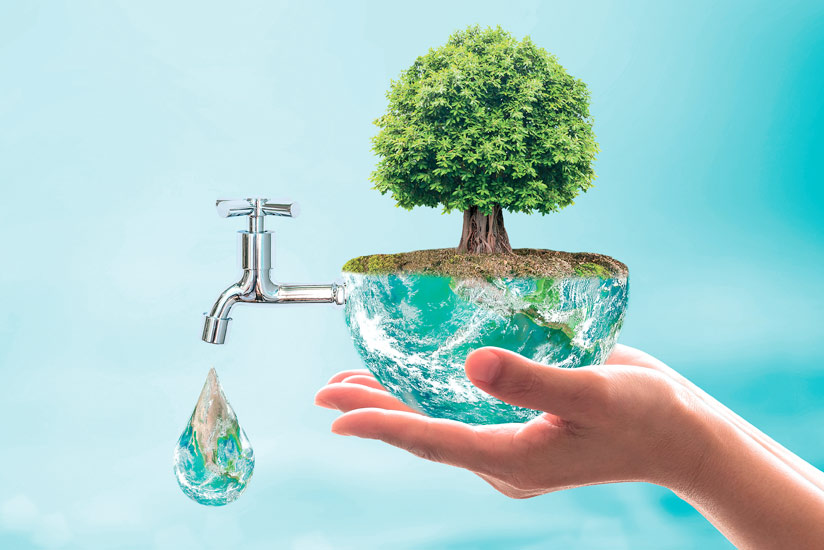
The Importance of Water Conservation: Saving Our Planet, One Drop at a Time
Water is an essential element for life. In fact, our bodies are made up of 60% water! Yet, despite knowing the importance of water, we still tend to take it for granted. It’s easy to think that because water comes out of our taps whenever we turn them on that there will always be a seemingly limitless supply of clean water. But this is far from the truth. With climate change, pollution, and population growth, the world’s water resources are under threat. As such, it’s critical that we begin to prioritize water conservation efforts.
Conserving Water Benefits the Environment
Water conservation is crucial for maintaining healthy ecosystems and preserving biodiversity. By reducing water usage, we can help protect natural habitats and safeguard the wildlife that rely on them. When humans waste water, it affects many different parts of the ecosystem, including wildlife, plants, and even soil. Moreover, conserving water also helps reduce the energy needed to process and transport it. By using less water, we reduce the need for energy-consuming pumps, which can help reduce overall carbon emissions.
Water Conservation Saves Money and Reduces Energy Consumption
When we are mindful of our water usage, we can save money and reduce our energy consumption. For example, by installing low-flow toilets and showerheads, you can reduce water usage by up to 20%. This reduction translates to lower water bills, and since heating water accounts for 18% of household energy usage, it can also cut down your energy bills. Reducing water usage overall also has a positive impact on your local water treatment facility. When you use less water, you reduce the amount of energy needed to treat and transport water.
Climate Change and Population Growth
Climate change and population growth are two significant factors impacting the world’s water supply. With rising global temperatures, water scarcity is a growing concern. It’s important to note that climate change and water scarcity are intertwined. Droughts, floods, and other weather-related events are becoming more frequent, making it more crucial than ever to conserve water. The exponential growth of the world’s population is another factor that is putting pressure on our water resources. By conserving water, we can make sure that there is enough water to go around.
Everyday Actions Make a Difference
Conserving water doesn’t have to be difficult; small changes can have a big impact. Turning off the tap while brushing your teeth, washing dishes, or lathering up in the shower saves significant amounts of water over time. Investing in low-flow toilets and showerheads is also a great way to save water and energy. But it’s not only about reducing our water consumption; it’s also about being mindful of how we use water. We should avoid wasting water on lawns or gardens that don’t really need it. Using rainwater to water your garden is also a great way to conserve water.
Collective Action
The government, non-governmental organizations, and individuals all have a role to play in conserving water. Governments can pass laws that protect our water supply, invest in water-efficient technologies, and create incentives for individuals and businesses to conserve water. NGOs can also help by raising awareness and funding research into water conservation. But individuals themselves have the most significant impact by changing their habits and reducing their water usage. Every small change we make can contribute to sustainable water management and help protect our planet.
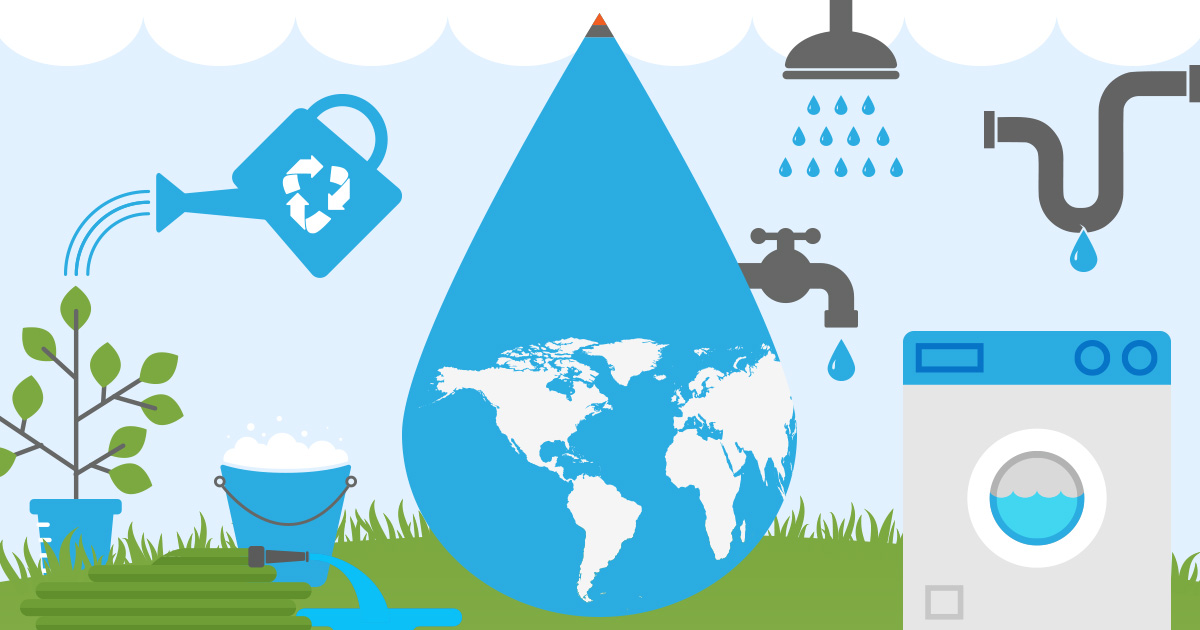
How Can a Plumber Help You Conserve Water?
Water is one of the basic necessities of life, however, it is also one of the earth’s most precious resources. Conserving water is crucial, especially considering that water scarcity has become a stark reality for many people around the world. One of the people who can help you make a significant impact in water conservation is a plumber.
Installing Low-Flow Toilets and Showerheads
A plumber can help you install low-flow toilets and showerheads, which use less water while still doing their job effectively. By replacing your current high-flow fixtures, you’re not only conserving water, but you’re also reducing your monthly water bills. Low-flow showerheads and toilets are designed to limit water waste, which benefits the environment and reduces the strain on water sources. You’ll never have too much water in your toilet tank anymore once you make the switch! Consider looking into a dual flush toilet tank as well for extra water saving since organic matter is separated from fluids!
Fixing Leaks
Leaking faucets, running toilets, and other plumbing fixtures can waste a lot of water. Most people are not aware of small leaks that over time serve to waste a significant amount of water. Plumbing professionals can quickly identify and repair any leaks, helping with efficient use of water. This helps to reduce utility bills and contributes to water conservation.
Installing Low Flow Faucet Aerators
Low flow aerators are designed to reduce the flow of water out of the faucet, while still producing the same amount of water pressure. The result is less water waste and lower water bills. Plumbers can easily install faucet aerators with minimal effort, making it a quick and easy way to save water around the house.
Upgrading Your Water Heater
If your water heater is more than a decade old, it might be time to consider an upgrade. Newer models of water heaters are designed to be more efficient and consume less energy. When you replace your old water tank with a new one, there is a noticeable reduction in water use, leading to better energy savings over time. Consult with a licensed plumber to determine the best water heater for your home size and needs. Plus you’ll have better hot water!
Educating Homeowners on Water Conservation Methods
Plumbers are not only trained to fix plumbing problems, but they also have a wealth of information on effective ways to conserve water. By working with homeowners to identify leaks, install low-flow fixtures, and upgrade appliances, a plumber can empower homeowners with new, effective ways to conserve water.

Do You Need A Professional Plumber?
When it comes to saving water, it’s always a good idea to have a professional plumber on your side. While it may seem like a simple task, conserving water can actually be quite complicated. From leaky pipes to inefficient appliances, there are many factors that can contribute to water waste in your home. That’s where MD Sewer and Plumbingcomes in. Our team of experienced plumbers can help you identify water-saving opportunities and make the necessary repairs and upgrades to help you save both water and money. So if you’re looking to conserve water and reduce your environmental impact, don’t hesitate to reach out to us at MD Sewer and Plumbing.
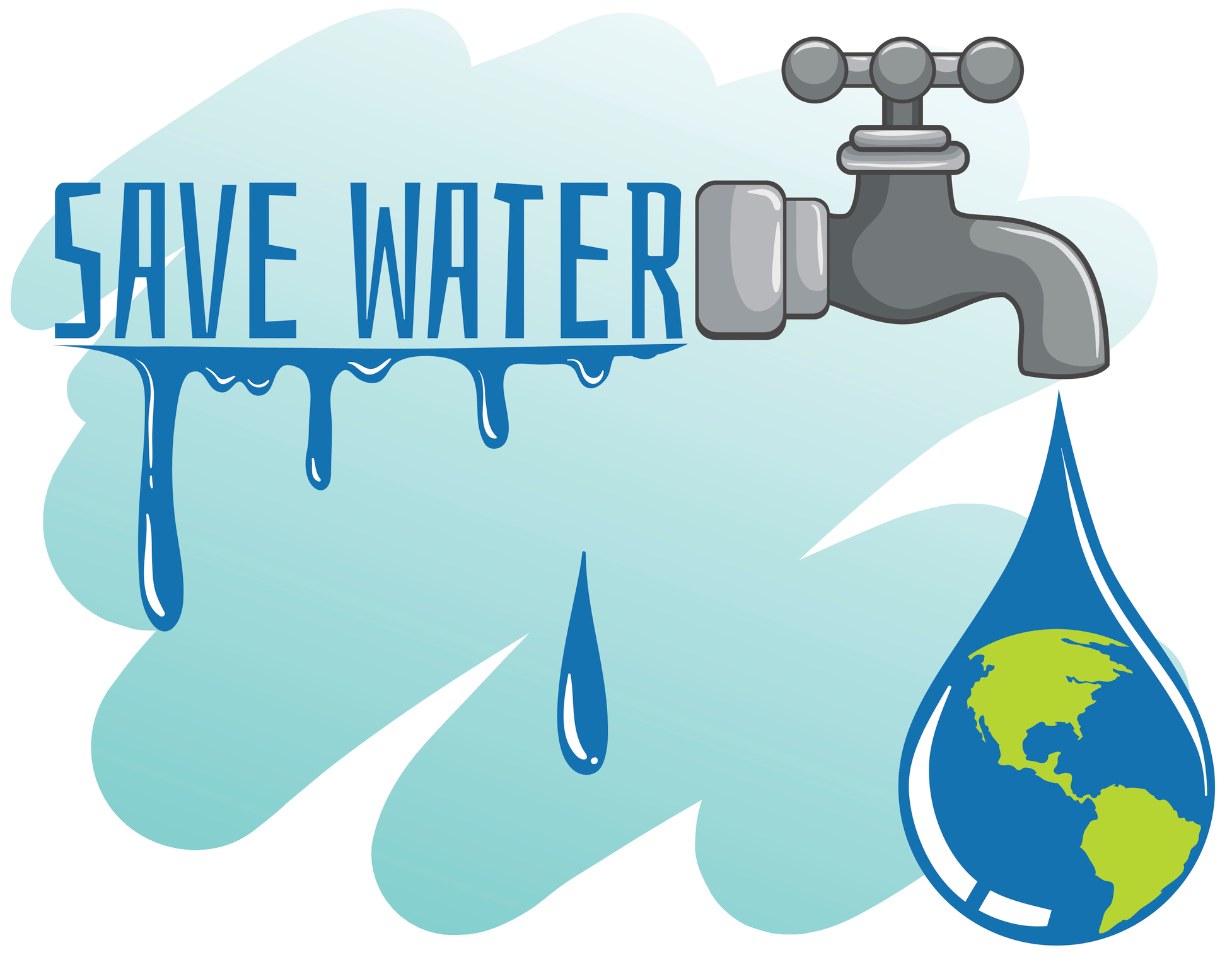
Conclusion
Remember, every drop counts when it comes to saving water. By implementing these simple changes in your daily routine, you can play an important role in conserving water and saving our planet. Share these tips with your family and friends to raise awareness and encourage everyone to be a part of this movement. Of course keep drinking water! We hope this blog has helped you understand how you can make a big difference with small changes. Let’s do our part and save our most precious resource – water! Don’t forget to check your house water meter!


